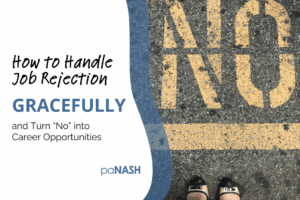|
|
Recently, I was chatting with a friend from church about her job. She’s a school teacher, but with a twist. Instead of working in a traditional classroom for a public or private school, she works in a local children’s hospital, teaching the patients who are there for extended periods of time. I never knew there were school teachers working inside children’s hospitals. So, I was curious as to how she discovered such a career path.
When asking her more about her work, she shared with me how she’d originally begun a career path in education. She quickly realized she didn’t really like working in a classroom setting.
At the time, she lived in Memphis near St. Jude’s Children’s Hospital. She often wondered how the children staying there were able to continue their learning during such an extended hospitalization.
She became curious and started asking hospital administrators about how the patients kept up with their education. This is when she learned of the teaching opportunities available in children’s hospitals.
It wasn’t long after these conversations that my friend began working as a teacher on the cancer ward of a children’s hospital after she moved to a new city.
Employers are seeking people who are curious
Being curious is very important in our careers. In fact, employers are more and more interested in hiring people who show curiosity.
They see natural curiosity as an asset to their companies and a benefit to their bottom line. So much so, they’re now adding it as a requirement or desired qualification to their job ads.
Curiosity leads to critical thinking and innovative solutions to problems, which results in greater success for the business.
Curiosity can lead to new business ideas
Being curious not only helps others’ businesses succeed, but it can also help you succeed in running your own business, if you choose to go this route.
I have a client who previously worked as a major league baseball scout for twenty years. He’s curious about how the skills he gained can carry over to a new career path.
He’s considered working for other companies in recruiting or sales. But I’ve challenged him to also explore ways he could use his experience to start something of his own.
This includes looking into possibly becoming a player performance consultant, a sponsorship manager, or someone who helps college athletes navigate the new area of N.I.L. (name, image, and likeness).
From the conversations we’ve had in our sessions, he’s discovered how he could team up with one of his connections in the tech industry to develop products such as scouting software, performance analysis tools, and sports apps.
Ways to be curious
You may be wondering how to show curiosity in a professional setting. A lot of my clients are nervous at first about asking questions of others, but once they start to do so, the process becomes easier.
Here are a few things to remember:
- Be willing to expand your network and meet new people
- Ask them open-ended questions
- Listen actively to what they have to say
- Keep an open mind to what they’re saying
- Be vulnerable in sharing your own thoughts
- Don’t be afraid of saying the wrong thing or making mistakes
- Stay humble
Conclusion
Had my friend from church not asked questions and put herself out there to talk to the right people, she’d probably be unhappy, thinking she was in the wrong career path, when in actuality, it was just the setting that was wrong.
And had my client only been curious enough to look for traditional jobs working in corporate instead of opportunities to partner with someone else, he may have ended up doing something that greatly limited his earning potential.
Curiosity may have killed the cat, but a lack of it could kill your career aspirations. If you’re not curious enough about what may interest you, you could miss out on something very special.
I encourage you to get curious about your career. Especially about new and different ways of doing what you already do, or different industries or populations your current skills can help.
If you need help knowing what questions to ask, who to talk to, or how to think outside the box for new opportunities, let’s talk!





